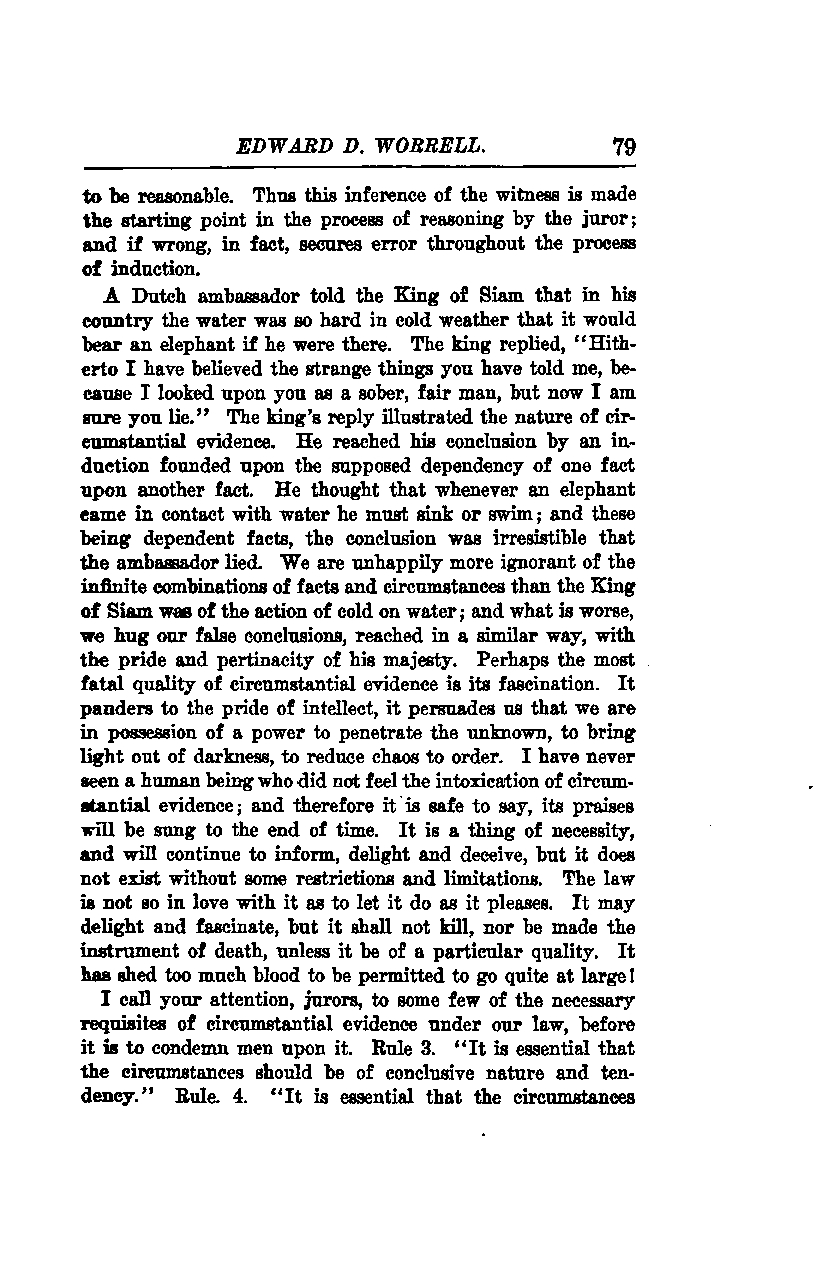
Here is the translated text as follows:
EDWARD D. WORRELL, 79
It is essential to be reasonable. Thus, this inference of the witness is made the starting point in the process of reasoning by the juror; and if wrong, in fact, secures error throughout the process of induction.
A Dutch ambassador told the King of Siam that in his country, the water was so hard in cold weather that it would bear an elephant if he were there. The king replied, "Hitherto I have believed the strange things you have told me, because I looked upon you as a sober, fair man, but now I am sure you lie." The king's reply illustrated the nature of circumstantial evidence. He reached his conclusion by an induction founded upon the supposed dependency of one fact upon another fact. He thought that whenever an elephant came in contact with water, he must sink or swim; and these being dependent facts, the conclusion was irresistible that the ambassador lied. We are unhappily more ignorant of the infinite combinations of facts and circumstances than the King of Siam was of the action of cold on water; and what is worse, we cling to our false conclusions, reached in a similar way, with the pride and pertinacity of his majesty. Perhaps the most fatal quality of circumstantial evidence is its fascination. It panders to the pride of intellect, it persuades us that we are in possession of a power to penetrate the unknown, to bring light out of darkness, to reduce chaos to order. I have never seen a human being who did not feel the intoxication of circumstantial evidence; and therefore it is safe to say, its praises will be sung to the end of time. It is a thing of necessity, and will continue to inform, delight, and deceive, but it does not exist without some restrictions and limitations. The law is not so in love with it as to let it do as it pleases. It may delight and fascinate, but it shall not kill, nor be made the instrument of death, unless it be of a particular quality. It has shed too much blood to be permitted to go quite at large!
I call your attention, jurors, to some few of the necessary requisites of circumstantial evidence under our law, before it is to condemn men upon it. Rule 3: "It is essential that the circumstances should be of conclusive nature and tendency." Rule 4: "It is essential that the circumstances..."
---